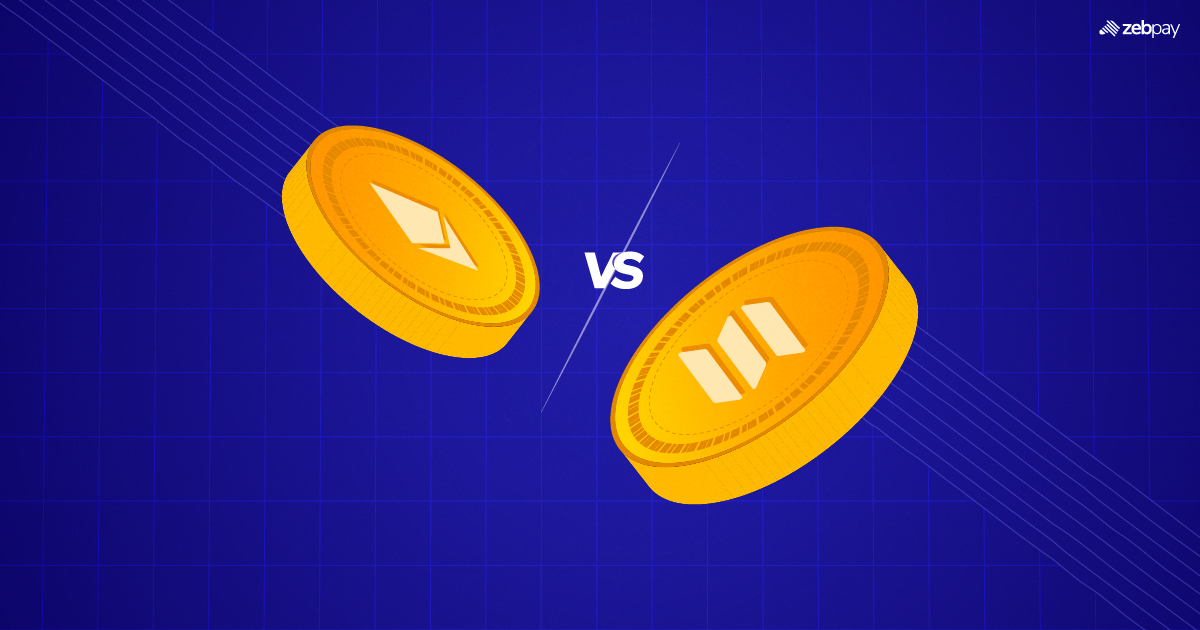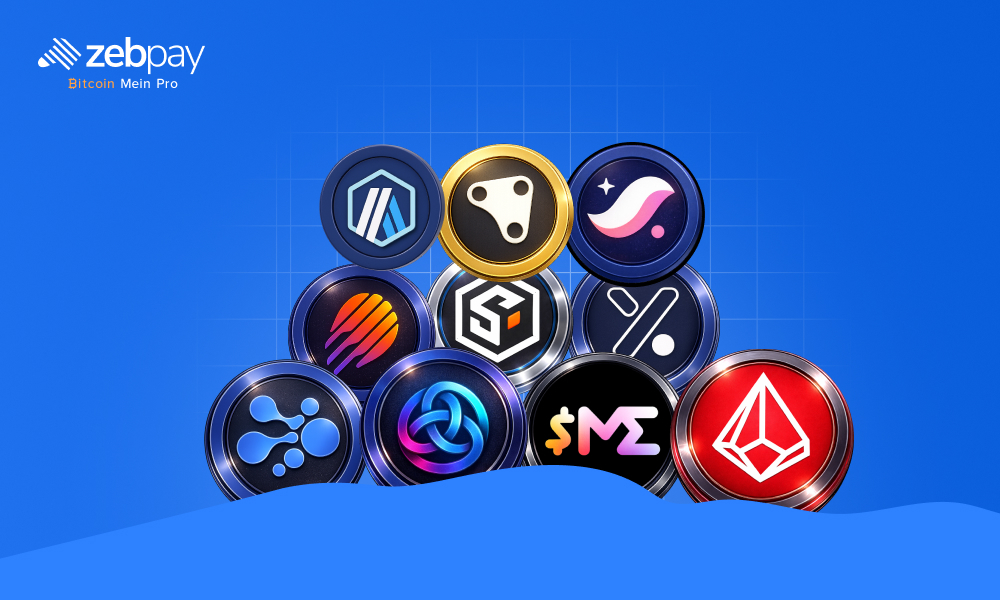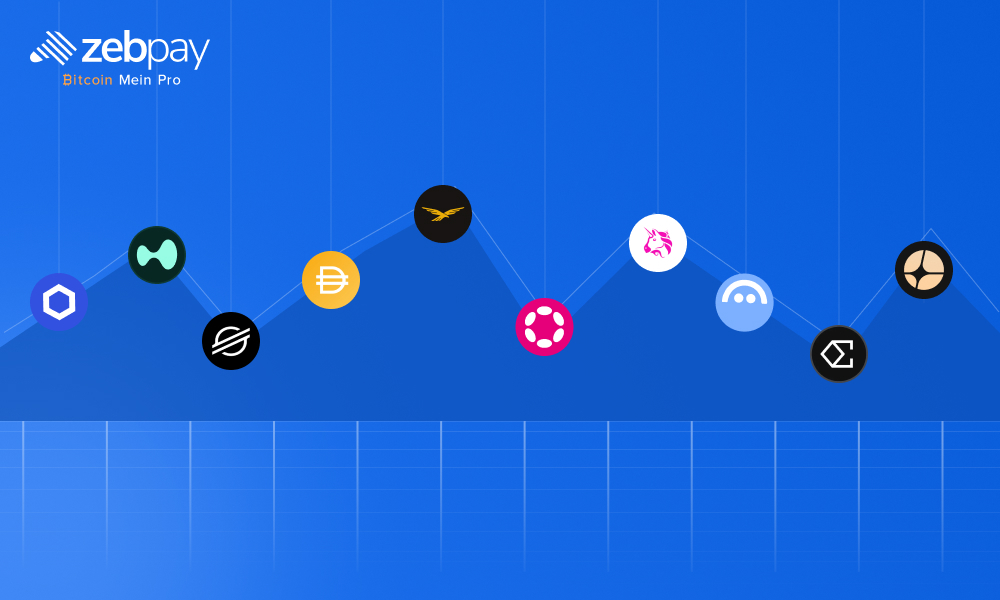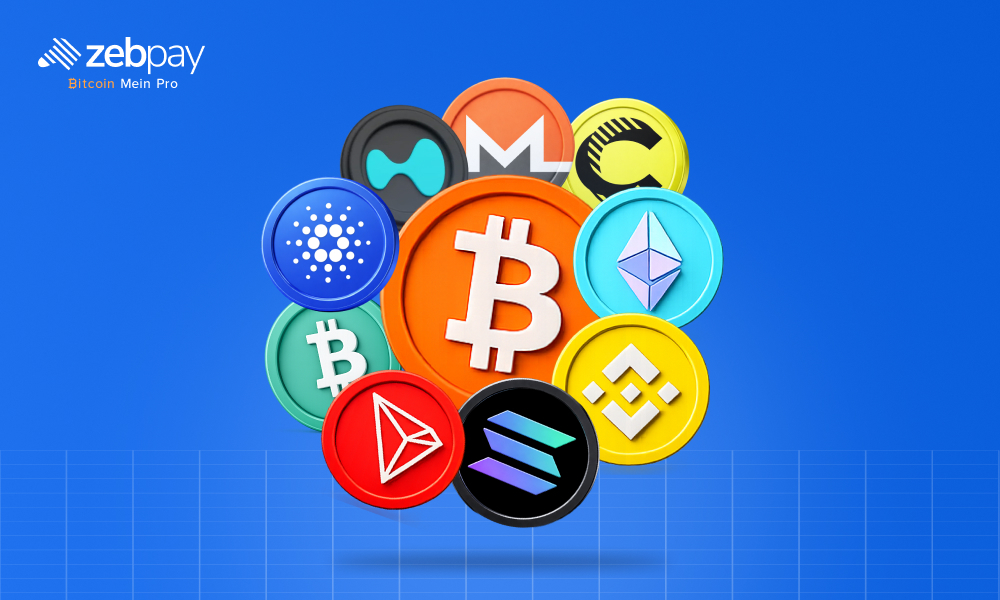Pizza or pasta? Netflix or Prime? Morning runs or evening walks? Choosing between options is second nature to us—we always want the best. So why should it be any different when selecting a blockchain or deciding which token to invest in?
One of the most common debates we’ve encountered is, ‘Ethereum or Solana?’ Which one stands out as the better blockchain? The truth is, there’s no one-size-fits-all answer, as each comes with its own strengths and trade-offs. The ideal choice depends on what you need it for. However, several key factors can help guide this decision—such as consensus mechanism, scalability, and overall adoption. So how do Ethereum and Solana stack up against each other in these areas?
Consensus Algorithm
Blockchain consensus algorithms serve as a framework that enables participants to reach an agreement on the state of the blockchain. Ethereum is currently in the process of transitioning from Proof of Work (PoW) to Proof of Stake (PoS). Meanwhile, Solana employs Proof of History (PoH) to establish a chronological order of transactions, with PoS ensuring their validation.
PoW is widely recognized for its robust security and decentralization. However, its high energy consumption has prompted Ethereum to shift towards PoS. On the other hand, Solana’s PoH mechanism creates a verifiable timeline of events, reducing the risk of front-running attacks by prioritizing transactions based on time of creation rather than transaction fees.
Which is better? Each approach has its strengths—while PoW is known for security, PoH enhances transaction efficiency. The right choice depends on what matters most to the user.
Scalability and Transaction Speed
Scalability and transaction speed are closely linked. A network with limited transaction speed may struggle to support a growing user base without relying on additional scaling solutions. Ethereum, before its transition to Proof of Stake (PoS), processed up to 30,000 transactions per second (TPS). With the shift to PoS, its capacity has significantly improved, reaching up to 100,000 TPS. However, to enhance scalability, Ethereum often relies on layer-two solutions like Polygon and Validium, which help manage congestion and reduce transaction fees.
Solana network, on the other hand, has built-in scalability, allowing it to process around 50,000 TPS with low latency. Instead of relying on external scaling layers, Solana structures its network to optimize data distribution, ensuring efficient transaction processing. This design enables high-speed transfers while maintaining cost-effectiveness.
Which is better? Both networks have made significant advancements in scalability. Ethereum’s transition to PoS has greatly increased its transaction capacity, while Solana continues to offer high-speed processing without additional scaling solutions. The choice ultimately depends on specific needs and priorities.
Platform Age and Adoption
The security of a smart contract platform is often influenced by its longevity. Older platforms have had more time to identify and address vulnerabilities, making them more resilient to emerging threats. A well-established platform with a large community benefits from extensive security research, experienced developers who understand its intricacies, and greater resources for auditing smart contracts.
In this regard, Ethereum holds a notable advantage over Solana. Launched in July 2015, Ethereum has a significantly longer track record compared to Solana, which debuted in March 2020. With a larger user base and a broader ecosystem of decentralized applications (dApps), Ethereum has been extensively studied for potential smart contract vulnerabilities, making it a well-vetted choice for developers.
Which is better? While both platforms continue to evolve, Ethereum’s maturity and widespread adoption provide a solid foundation for security, whereas Solana, as a newer entrant, is still in the process of building its security reputation.
Is One Better Than The Other?
Solana’s market capitalization stands at approximately $64 billion, whereas Ethereum’s is nearly $229 billion—a difference that reflects Ethereum’s longer presence in the blockchain space. However, the right choice between the two depends entirely on your specific needs and use cases.
Ethereum is widely regarded as the more secure, decentralized, and well-established blockchain. Since its launch in 2014, it has built a strong developer ecosystem and remains the preferred platform for NFTs and various decentralized applications. On the other hand, Solana offers significantly faster transaction speeds and lower costs, making it an attractive option for those prioritizing efficiency and scalability.
Both blockchains come with their own advantages and trade-offs. The best approach is to assess your goals and determine which network aligns better with your requirements!










